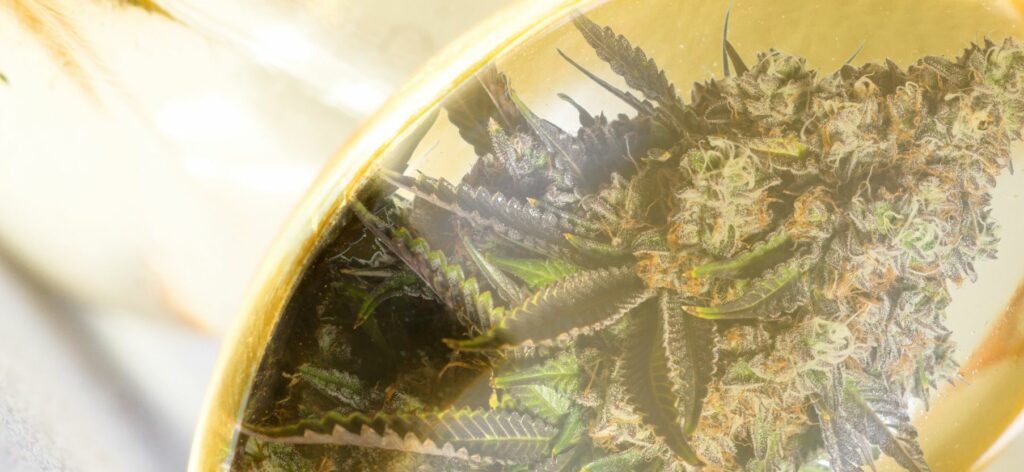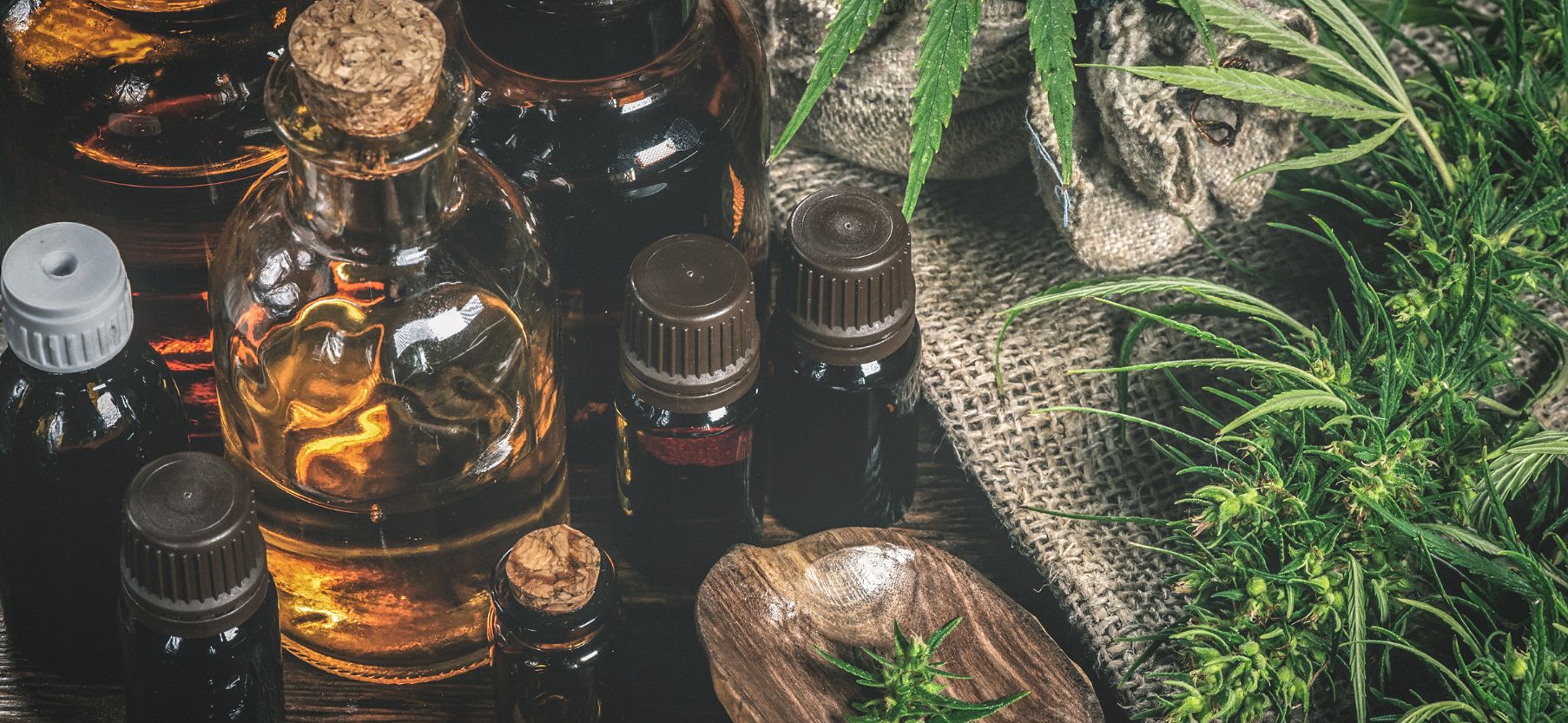The therapeutic effects of cannabis have been appreciated since antiquity, as evidenced by its presence in ancient Chinese texts and Indian medical practices. Cannabis was often included in traditional medicines such as Ayurveda to treat a variety of ailments including pain, inflammation and digestive issues. It makes sense then that one might combine cannabis and adaptogens to enhance beneficial effects. Enter, functional cannabis.
Therapeutic effects of cannabis
It is known now that the therapeutic effects of cannabis come from its active ingredients known as cannabinoids. Cannabinoids interact with the endocannabinoid system (ECS), a regulatory system present within the human body that helps to maintain balance and homeostasis within our cells and organs.

The most well-known cannabinoids are tetrahydrocannabinol (THC), which is responsible for creating the feeling of being ‘high’ when consumed, and cannabidiol (CBD) which does not produce psychoactive effects. CBD is beneficial for promoting things like relaxation and sleep as well as reducing inflammation and pain associated with conditions like arthritis or fibromyalgia. While using cannabis on its own has been shown to have many beneficial events, it can also be combined with other herbal supplements. This is the thinking behind the idea of functional cannabis.
What is functional cannabis
Functional cannabis is a unique approach to holistic healing that combines cannabis and other herbal supplements to enhance overall effects. This concept follows the way plants are typically used in naturopathic medicine, where herbs and adaptogens with similar or complementary effects are combined into blends.
Since cannabis is only recently becoming legalized in the west, there are few functional cannabis products on the market. Most of the products you can find in dispensaries feature cannabis as the sole ingredient. That said, as cannabis continues to gain recognition as a form of plant medicine, we can expect to see it included in blends just like any other herb.
While there hasn’t been much scientific research examining the idea of functional cannabis, anecdotal reports suggest that combining cannabis with other herbs can enhance overall benefits.
Combining herbs and adaptogens for functional cannabis blends
Stress and anxiety reduction are also potentially prime candidates for functional cannabis. Ashwagandha is well known for its ability to reduce cortisol, helping to lower stress and increase the body’s ability to respond to it. These effects are very similar to those induced by THC and CBD, which have both been found to reduce anxiety. Similarly, reishi may be another medicinal plant whose effects might be enhanced by cannabinoids.

Reishi mushroom is an incredible superfood that has been used in traditional Chinese medicine for centuries. Research shows that it can help reduce symptoms of anxiety and depression, as well as improve sleep quality—all symptoms that many people find cannabis helps relieve.
Another area that might benefit from functional cannabis is inflammation and joint pain. Turmeric contains curcumin, which blocks the production of arachidonic acid and cytokines that are responsible for inflammation within the body. Meanwhile, CBD is known to interact with the endocannabinoid system (ECS). The ECS plays an important role in regulating various functions in our bodies, including inflammation. When CBD binds to cannabinoid receptors in the ECS, it helps to reduce the production of inflammatory molecules in the body and can help reduce inflammation. The two compounds work to target inflammation in different ways, raising the question of whether they might work even better together than they do separately.
Is cannabis an adaptogen?
The concept of functional cannabis implies that combining cannabis with other herbs can enhance the therapeutic benefits provided by each individual plant. But is cannabis itself an adaptogen?
As a reminder, adaptogens are a class of natural compounds which are known for their ability to reduce stress and fatigue. While cannabis does have many beneficial effects, it is not typically considered to be an adaptogen itself.
However, there is an overlap between the effects of cannabis and adaptogenic herbs. For example, research suggests that CBD can reduce cortisol levels, which is associated with reduced feelings of stress and anxiety. There is also evidence that CBD can improve sleep quality and duration in individuals with insomnia.
Similar to functional mushrooms, while neither CBD or THC are classified as adaptogens themselves, they do seem to have some adaptogenic effects.
Safety and efficacy
Functional cannabis represents a unique approach to holistic healing. Ultimately though, while functional cannabis may offer many potential benefits, more research is needed to further understand how combining these natural ingredients may impact overall well-being in humans.
Like any herbal remedy, functional cannabis blends should always be used under the guidance of an experienced practitioner in order to ensure safe consumption and optimal benefit. A qualified natural health professional will be able to recommend the right dosage and combination of herbs to create a tailored protocol that is suited specifically to your individual needs.

